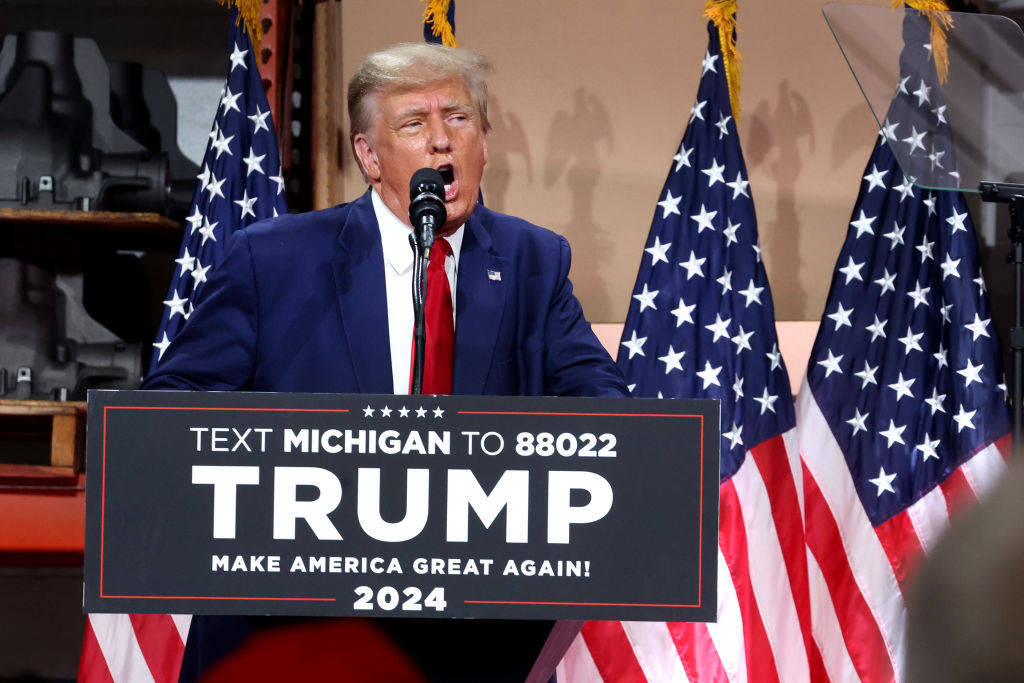
On Wednesday, the Michigan Supreme Court declined to hear a case looking to assess whether the insurrection clause in the 14th Amendment applies to former President Donald Trump, allowing him to remain on the presidential ballot for 2024.
The court’s order upheld a Michigan Court of Appeals ruling on the matter, saying that it was “not persuaded that the questions presented should be reviewed by this Court” and refusing to comment on whether Trump engaged in insurrection, or whether the insurrectionist ban applies to presidential candidates.
This comes after the decision made on Dec. 19 in Colorado—where justices ruled that Section 3 of the 14th Amendment does apply to presidential candidates and that Trump was ineligible for election because of his role in the Jan. 6, 2021 insurrection, removing him from the primary ballot.
The Colorado Supreme Court said they would stay their ruling until Jan. 4 in case the U.S. Supreme Court wanted to weigh in. The Supreme Court has not yet agreed to hear the case, but their opinion could be instrumental in how the 2024 presidential election plays out given this most recent ruling.
The Michigan case was filed by Free Speech for People, a nonprofit organization, on behalf of voters. But LaBrant v. Benson was rejected on procedural grounds before it even received a hearing because the state’s higher court agreed that Michigan state law does not allow the secretary of state to exclude a candidate like Trump from the primary election.
Plaintiffs “have identified no analogous provision in the Michigan Election Law that requires someone seeking the office of President of the United States to attest to their legal qualification to hold the office,” wrote Justice Elizabeth Welch in the court order on Wednesday, saying that Michigan law differs from Colorado’s.
“We are disappointed by the Michigan Supreme Court’s decision,” said Ron Fein, Legal Director of Free Speech For People, an attorney for the plaintiffs, in a Wednesday statement. “The ruling conflicts with longstanding US Supreme Court precedent that makes clear that when political parties use the election machinery of the state to select, via the primary process, their candidates for the general election, they must comply with all constitutional requirements in that process.”
However, Welch said that appellants would still have the chance to bring forward another case regarding Trump’s qualifications as a presidential candidate if he becomes the Republican nominee, or seeks election as an independent.
Free Speech for the People, which has another lawsuit seeking to remove Trump from the ballot in Oregon, said the Michigan Supreme Court’s decision has no impact on other efforts to disqualify Trump.
“The Court’s decision is disappointing but we will continue, at a later stage, to seek to uphold this critical constitutional provision designed to protect our republic,” said attorney Mark Brewer. “Trump led a rebellion and insurrection against the Constitution when he tried to overturn the 2020 presidential election and he is disqualified from ever seeking or holding public office again.
More Must-Reads From TIME
- The 100 Most Influential People of 2024
- Coco Gauff Is Playing for Herself Now
- Scenes From Pro-Palestinian Encampments Across U.S. Universities
- 6 Compliments That Land Every Time
- If You're Dating Right Now , You're Brave: Column
- The AI That Could Heal a Divided Internet
- Fallout Is a Brilliant Model for the Future of Video Game Adaptations
- Want Weekly Recs on What to Watch, Read, and More? Sign Up for Worth Your Time
Contact us at letters@time.com